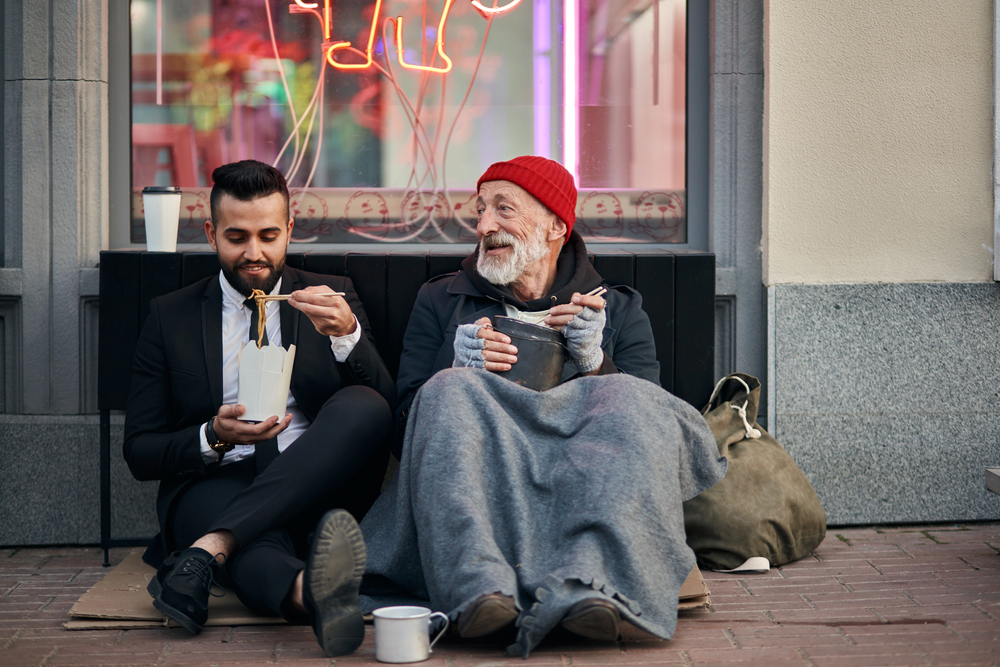Authors
Frederick Shack, LMSW1,4
Mardoche Sidor, MD1,2,3
Jose Cotto, LCSW1,5
Karen Dubin, PhD, LCSW2,4
Lesmore Willis Jr, MPA, MHA1
Gary Jenkins, MPA1
Affiliations
1Urban Pathways, New York, NY
2SWEET Institute, New York, NY
3Columbia University Center for Psychoanalytic Study and Research, New York, NY
4Columbia University, Department of Social Work, New York, NY
5New York University, Department of Social Work, New York, NY
Correspondence concerning this article should be addressed to Mardoche Sidor, MD, Urban Pathways, at msidor@urbanpathways.org
Abstract
Corrective emotional experiences (CEE) and unconditional positive regard (UPR) have been cornerstones of psychotherapy for decades, yet their application in frontline community-based mental health and housing services remains underdeveloped. This article examines how Urban Pathways is integrating these principles into their Four-Stage Engagement Model, particularly in the empathizing stage. We argue that CEE and UPR are not merely therapeutic ideals but practical tools for staff across all roles, from case managers to clinicians, to transform resident-staff interactions. By grounding these concepts in trauma-informed care, attachment theory, and modern neuroscience, we present working evidence that unconditional acceptance and emotionally reparative encounters can reduce stigma, build trust, and promote long-term recovery.
Keywords
Corrective Emotional Experience, Unconditional Positive Regard, Trauma-Informed Care, Engagement, Therapeutic Alliance, Community Mental Health, Supportive Housing
Introduction
The concept of corrective emotional experience (Alexander & French, 1946) describes a process in which an individual encounters new relational experiences that challenge and repair maladaptive patterns from the past. Similarly, unconditional positive regard (Rogers, 1957) posits that human growth depends on acceptance without judgment. Both principles have empirical support as mechanisms of change in psychotherapy (Norcross & Wampold, 2019; Elliott et al., 2018).
In community-based care, particularly in housing programs for people experiencing homelessness, serious mental illness, and substance use disorders, these principles are rarely systematized. Staff often default to behavioral management or compliance frameworks, inadvertently perpetuating cycles of mistrust. The Four-Stage Engagement Model reintroduces CEE and UPR as essential to engagement, making them accessible beyond traditional therapy rooms.
Theoretical Framework
CEE and UPR converge in their focus on relational repair:
- Attachment Theory: Early relational trauma disrupts trust; corrective experiences help re-establish secure patterns (Mikulincer & Shaver, 2016).
- Trauma-Informed Care: Safety and empowerment are core elements; UPR offers safety by removing judgment (SAMHSA, 2014).
- Neuroscience: Repeated positive relational interactions modulate stress reactivity and promote neuroplasticity in circuits governing emotion regulation (Siegel, 2012; Cozolino, 2017).
- Common Factors Research: The therapeutic alliance, heavily influenced by empathy and acceptance, accounts for more variance in outcomes than specific techniques (Wampold & Imel, 2015).
By embedding these frameworks into frontline practice, the empathizing stage operationalizes what has historically been viewed as abstract ideals.
Application/Analysis
At Urban Pathways, staff are using reflective supervision to explore how to offer CEE and UPR in everyday interactions:
- A resident accustomed to rejection was consistently greeted warmly, regardless of mood or relapse, leading to improved willingness to engage in case planning.
- Staff are intentionally reframing behavioral incidents through the lens of “what happened to you” rather than “what’s wrong with you,” reducing punitive responses and enabling trust.
- Validation strategies (“It makes sense you’d feel that way given your experience”) were trained as micro-corrective experiences, allowing residents to internalize new relational possibilities.
These practices are illustrating how CEE and UPR can be delivered outside traditional therapy by housing staff, security personnel, and administrators.
Implications
- Practice: Embedding CEE and UPR into staff training can transform housing programs into therapeutic environments.
- Supervision: Supervisors can help staff recognize moments where frustration arises and guide re-centering toward empathy and acceptance.
- Policy: Reframing “compliance” measures into relational measures (trust, safety, validation) aligns service systems with recovery-oriented models.
- Research: Future studies will be conducted at Urban Pathways to evaluate outcomes such as reduced psychiatric hospitalizations, improved housing stability, and enhanced resident satisfaction.
Conclusion
Corrective emotional experience and unconditional positive regard are not optional extras but core mechanisms of healing in community mental health. By embedding these principles into the Four-Stage Engagement Model, Urban Pathways is demonstrating that relational repair can and needs to occur across every staff-resident interaction.
References
- Alexander, F., & French, T. (1946). Psychoanalytic therapy: Principles and application. Ronald Press.
- Cozolino, L. (2017). The neuroscience of psychotherapy: Healing the social brain (3rd ed.). Norton.
- Elliott, R., Watson, J. C., Greenberg, L. S., Timulak, L., & Freire, E. (2018). Emotion-focused therapy: Theory and practice. American Psychological Association.
- Mikulincer, M., & Shaver, P. R. (2016). Attachment in adulthood: Structure, dynamics, and change (2nd ed.). Guilford Press.
- Norcross, J. C., & Wampold, B. E. (2019). Evidence-based therapy relationships: Research conclusions and clinical practices. Psychotherapy, 56(3), 419–430.
- Rogers, C. R. (1957). The necessary and sufficient conditions of therapeutic personality change. Journal of Consulting Psychology, 21(2), 95–103.
- (2014). SAMHSA’s concept of trauma and guidance for a trauma-informed approach. HHS Publication.
- Siegel, D. J. (2012). The developing mind: How relationships and the brain interact to shape who we are (2nd ed.). Guilford Press.
- Wampold, B. E., & Imel, Z. E. (2015). The great psychotherapy debate: The evidence for what makes psychotherapy work (2nd ed.). Routledge.
This article is part of a collaboration between SWEET Institute and Urban Pathways
Read the full scientific version HERE

